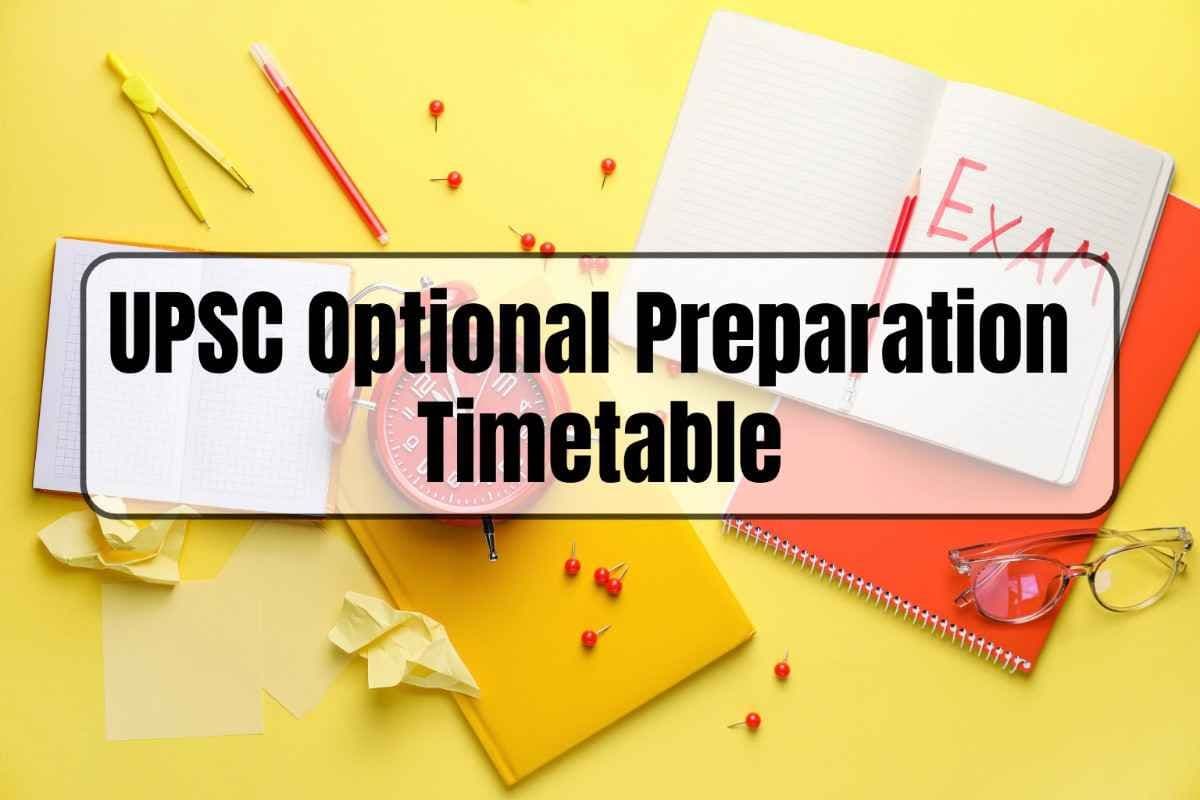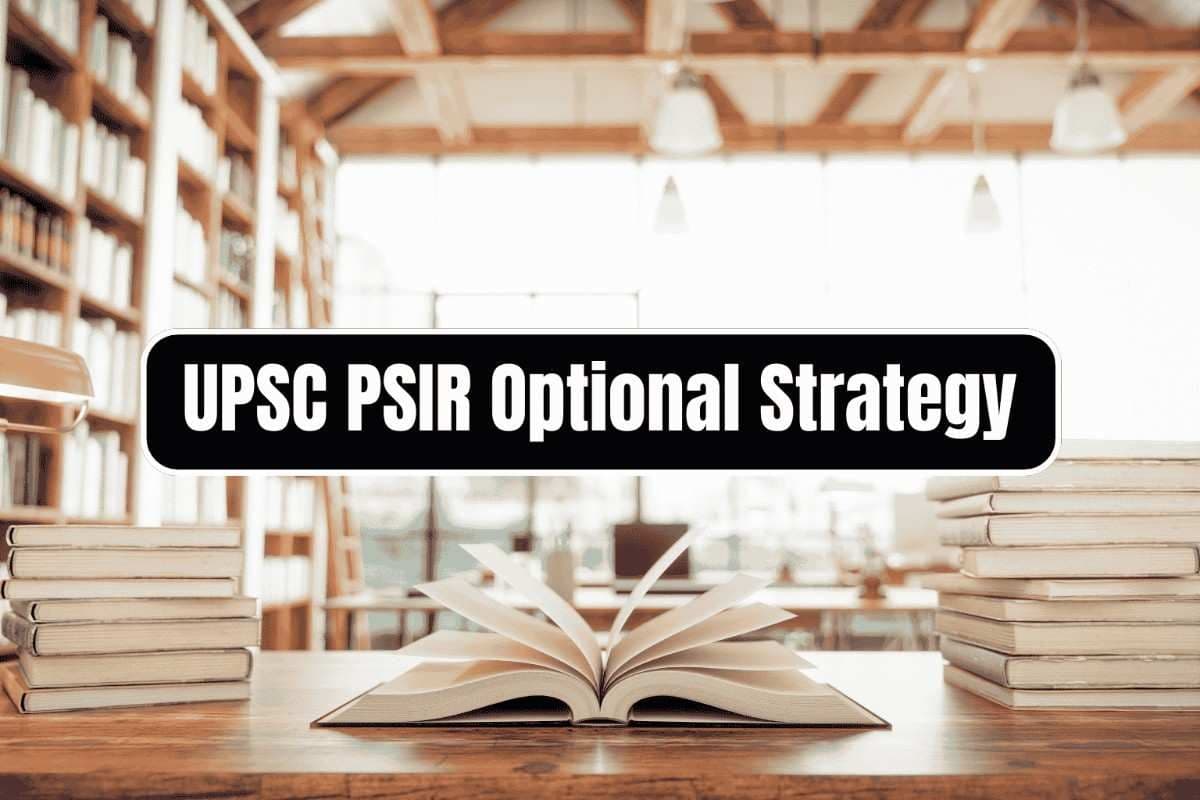UPSC Mains PSIR Optional Syllabus, Paper Structure, and Study Materials
Aug, 2025
•4 min read
Political Science & International Relations (PSIR) studies how power works within countries and across the world. It is a popular optional subject choice for the UPSC Mains examination due to its well-defined syllabus and strong overlap with General Studies.
The subject helps you understand India’s Constitution, federal system, governance, foreign policy, and global relations. This guide will walk you through the complete syllabus for Papers I & II, the paper pattern, and the best books to study from. Also, see how using SuperKalam’s instant Mains answer evaluation can help you write better answers and boost your score.
Why Choose the PSIR Optional for UPSC Mains
PSIR offers a useful mix of theoretical clarity and practical relevance, making it a popular and rewarding optional subject for UPSC aspirants. Here are the key advantages:
- Well-Structured Syllabus: Divided into Indian politics and international relations for focused study.
- GS Integration: Significant overlap with polity, governance, and global issues, cutting down on extra effort.
- Current Affairs Driven: Stays relevant through ongoing political events and foreign policy debates.
- Analytical Edge: Theories like democracy, realism, and liberalism sharpen your answer-writing skills.
- Rich Resources: Wide range of books, journals, reports, and online content for in-depth preparation.
These advantages make PSIR a high-scoring, time-efficient, and engaging optional for UPSC aspirants. Now, let’s understand the PSIR paper structure.
Also read: Scoring Top Optional Subjects for UPSC Mains Exam
PSIR Optional Paper Structure for UPSC Mains
Understanding the exam pattern for the PSIR Optional in UPSC Mains is crucial for effective preparation. Here are the details:
- The PSIR Optional in UPSC Mains consists of two papers, each lasting 3 hours and carrying 250 marks.
- There are a total of EIGHT questions, divided into two sections and printed in both Hindi and English.
- Candidates must attempt FIVE questions in all, and Questions No. 1 and 5 are compulsory.
- From the remaining questions, candidates must attempt any THREE, ensuring at least ONE question is selected from each section.
- The number of marks carried by a question or part is indicated against it.
To make your practice more effective, use the SuperKalam Mains Evaluation Tool. It gives you fair, UPSC-standard feedback in just 1 minute, so you can spot mistakes and improve immediately instead of waiting days for reviews. See how it works:

UPSC Mains PSIR Complete Syllabus 2025 – Paper I & II
Each paper in PSIR Optional Mains (Paper I and II) is 250 marks, i.e, a total of 500 marks. Below is the detailed syllabus for each paper.
PSIR PAPER I
A. Political Theory and Indian Politics:
1. Political Theory: Meaning and Approaches.
2. Theories of the State: Liberal, Neoliberal, Marxist, Pluralist, Post-colonial, and feminist.
3. Justice: Conceptions of justice with special reference to Rawls’ theory of justice and its communitarian critiques.
4. Equality: Social, political, and economic; relationship between equality and freedom; Affirmative action.
5. Rights: Meaning and theories; different kinds of rights; concept of Human Rights.
6. Democracy: Classical and contemporary theories; different models of democracy – representative, participatory, and deliberative.
7. Concept of power: Hegemony, ideology, and legitimacy.
8. Political Ideologies: Liberalism, Socialism, Marxism, Fascism, Gandhism, and Feminism.
9. Indian Political Thought: Dharamshastra, Arthashastra and Buddhist traditions; Sir Syed Ahmed Khan, Sri Aurobindo, M.K. Gandhi, B.R. Ambedkar, M.N. Roy.
10. Western Political Thought: Plato, Aristotle, Machiavelli, Hobbes, Locke, John S. Mill, Marx, Gramsci, Hannah Arendt.
B. Indian Government and Politics:
1. Indian Nationalism:
- Political Strategies of India’s Freedom Struggle: Constitutionalism to mass Satyagraha, Non-cooperation, Civil Disobedience; Militant and revolutionary movements, Peasant and workers’ movements.
- Perspectives on Indian National Movement: Liberal, Socialist and Marxist; Radical humanist and Dalit.
2. Making of the Indian Constitution: Legacies of the British rule; different social and political perspectives.
3. Salient Features of the Indian Constitution: The Preamble, Fundamental Rights and Duties, Directive Principles, Parliamentary System and Amendment Procedures; Judicial Review and Basic Structure doctrine.
4. (a) Principal Organs of the Union Government: Envisaged role and actual working of the Executive, Legislature, and Supreme Court.
(b) Principal Organs of the State Government: Envisaged role and actual working of the Executive, Legislature, and High Courts.
5. Grassroots Democracy: Panchayati Raj and Municipal Government; significance of 73rd and 74th Amendments; Grassroot movements.
6. Statutory Institutions/Commissions: Election Commission, Comptroller and Auditor General, Finance Commission, Union Public Service Commission, National Commission for Scheduled Castes, National Commission for Scheduled Tribes, National Commission for Women, National Human Rights Commission, National Commission for Minorities, National Backward Classes Commission.
7. Federalism: Constitutional provisions; changing nature of centre-state relations; integrationist tendencies and regional aspirations; inter-state disputes.
8. Planning and Economic Development: Nehruvian and Gandhian perspectives; role of planning and public sector; Green Revolution, land reforms and agrarian relations; liberalization and economic reforms.
9. Caste, Religion, and Ethnicity in Indian Politics.
10. Party System: National and regional political parties, ideological and social bases of parties; patterns of coalition politics; Pressure groups, trends in electoral behaviour; changing socio-economic profile of Legislators.
11. Social Movements: Civil liberties and human rights movements; women’s movements; environmentalist movements.
PSIR PAPER II
Comparative Political Analysis and International Politics:
1. Comparative Politics: Nature and major approaches; political economy and political sociology perspectives; limitations of the comparative method.
2. State in comparative perspective: Characteristics and changing nature of the State in capitalist and socialist economies, and advanced industrial and developing societies.
3. Politics of Representation and Participation: Political parties, pressure groups, and social movements in advanced industrial and developing societies.
4. Globalisation: Responses from developed and developing societies.
5. Approaches to the Study of International Relations: Idealist, Realist, Marxist, Functionalist, and Systems Theory.
6. Key concepts in International Relations: National interest, Security and power; Balance of power and deterrence; Transnational actors and collective security; World capitalist economy and globalisation.
7. Changing International Political Order:
- Rise of superpowers; strategic and ideological Bipolarity, arms race, and Cold War; nuclear threat;
- Non-aligned movement: Aims and achievements;
- Collapse of the Soviet Union; Unipolarity and American hegemony; relevance of non-alignment in the contemporary world.
8. Evolution of the International Economic System: From Brettonwoods to WTO; Socialist economies and the CMEA (Council for Mutual Economic Assistance); Third World demand for a new international economic order; Globalisation of the world economy.
9. United Nations: Envisaged role and actual record; specialized UN agencies-aims and functioning; need for UN reforms.
10. Regionalisation of World Politics: EU, ASEAN, APEC, SAARC, NAFTA.
11. Contemporary Global Concerns: Democracy, human rights, environment, gender justice, terrorism, nuclear proliferation.
India and the World:
1. Indian Foreign Policy: Determinants of foreign policy; institutions of policy-making; continuity and change.
2. India’s Contribution to the Non-Alignment Movement: Different phases; current role.
3. India and South Asia:
- Regional Co-operation: SAARC – past performance and prospects.
- South Asia as a Free Trade Area.
- India’s “Look East” policy.
- Impediments to regional co-operation: river water disputes; illegal cross-border migration; ethnic conflicts and insurgencies; border disputes.
4. India and the Global South: Relations with Africa and Latin America; leadership role in the demand for NIEO and WTO negotiations.
5. India and the Global Centres of Power: USA, EU, Japan, China, and Russia.
6. India and the UN System: Role in UN Peace-keeping; Demand for Permanent Seat in the Security Council.
7. India and the Nuclear Question: Changing perceptions and policy.
8. Recent developments in Indian Foreign policy: India’s position on the recent crisis in Afghanistan, Iraq, and West Asia, growing relations with the US and Israel; vision of a new world order.
Books & Resources to Master PSIR Optional for UPSC
Now that you know the complete PSIR Optional syllabus, it’s time to focus on the right study material. Choosing the correct books and resources will save you time, clear your concepts, and help you write precise, well-structured answers in the exam.
NCERT Books for PSIR Optional
NCERT books are a great starting point for UPSC PSIR prep; they make it easier to grasp the basic concepts and theories that everything else builds on. You can refer to these books for PSIR:
- Class IX: Democratic Politics Part I
- Class X: Democratic Politics Part II
- Class XI: Indian Constitution at Work
- Class XI: Political Theory
- Class XII: Contemporary World Politics
- Class XII: Politics in India Since Independence
Ready to master the NCERTs for UPSC? Begin your journey with Super Start with NCERT, a free program by SuperKalam that guides you step-by-step to build a solid foundation. Get the clarity, confidence, and direction you need to ace your UPSC prep from the very start!
NCERTs may not cover everything in the UPSC syllabus, but they explain key governance ideas and admin terms clearly. Starting with them makes tough reference books much easier to understand later.
UPSC PSIR Optional – Standard Booklist
| Paper | Book Title & Author |
|---|---|
| Paper 1 (Political Theory & Indian Politics) |
|
| Paper 2 (Comparative Politics & International Relations) |
|
These books cover the main topics in PSIR Optional Papers, helping you build a solid understanding of the theory while also sharpening your ability to analyse current global and domestic issues.
Useful Online Resources for PSIR Optional
Along with books, using structured online resources can speed up your preparation and keep it aligned with UPSC’s requirements.
Along with books, using structured and reliable online resources will help you prepare more efficiently and stay updated with relevant examples. Here are some trusted sources:
- SuperKalam – A revolutionary AI-backed UPSC learning ecosystem for focused & disciplined preparation.
- IGNOU Public Administration Notes – Free, simple modules on admin theory, Indian governance, and policies.
- 2nd ARC Reports – Expert reviews of governance reforms and best practices.
- PIB – Official govt news, policy updates, and announcements.
- PRS Legislative Research – Easy bill summaries, debates, and law analysis.
- The Hindu – Daily in-depth coverage of politics, IR, and governance.
- Indian Express “Explained” – Quick, clear breakdowns of laws, policies, and events.
- EPW – Research-based articles on politics and administration.
- Economic Survey – Annual data on the economy, schemes, and policies.
- Union Budget – Govt spending plans, schemes, and priorities.
- NFHS – Key stats on health, demographics, and welfare.
- NITI Aayog Reports – Plans, reforms, and development rankings.
Conclusion
With its clear syllabus, strong GS overlap, and constant link to current affairs, PSIR shapes your scores and perspective. Master it with focus and discipline, and you’ll walk into the UPSC Mains exam with clarity, confidence, and the edge to outperform.
Explore SuperKalam's Resources and set yourself on the path to success!
Download Superkalam App now: SuperKalam Crack UPSC IAS
Boost Your PSIR Optional Score with SuperKalam Mains Answer Evaluation Tool
Get instant, detailed feedback in just 60 seconds.
Evaluate Your Answers now

